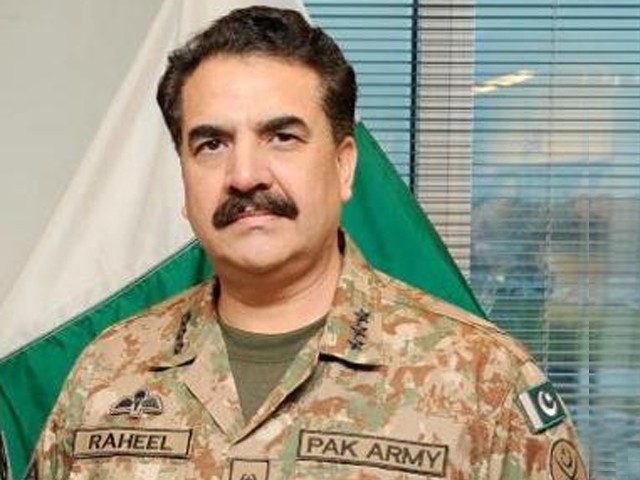
Iftikhar Hussain
While his American hosts were less skeptical about him than his predecessors, Pakistan’s military chief General Raheel Sharif ongoing weeklong visit to the US was rather a mix of bitter and sweet at the same time. But shrouded in secrecy in a crowded media city-Washington DC.
A Washington Post report published ahead of General Raheel’s visit last week said that Pakistan top general will face less skepticism than his predecessors because of the boost in confidence of his allies following Pakistan military offensive in North Waziristan killing more than 1200 militants and sacrificing some 100 soldiers. The much awaited operation in North Waziristan added a strong chip to Pakistan’s bargaining position.
Things probably did not go that smooth. When General Raheel was setting across the table at Pentagon discussing what Pakistan can deliver on and convincing Americans of his military commitment in Afghanistan post-withdrawal period, the critical US concerns were rather echoed by Pakistan top diplomat Sartaj Aziz in his comments to the media.
Sartaj Aziz in an interview said Pakistan should not target militant groups who do not pose a threat to Pakistan’s security. He was apparently referring to the lethal Haqqani network-the prime killer of US troops in Afghanistan. The comments prompted the US state department officials to remind the visiting Pakistani general in town, “Haqqani network poses as much threat to the US as other militant groups.”
It was seen in Washington a kind of reinforcement of the Pentagon report released earlier this month warning Congress that Pakistan army is using proxies in Afghanistan to retain its influence.
Former US Ambassador to Pakistan, William B. Milam, told VOA Deewa that relations between the two important partners seem to have improved over the past year but obviously not perfect. Mr Milam thinks differences over Pakistan’s future role in Afghanistan will decide the course of action.
“Pakistanis claim to have started unravel those ties, (links with Afghan Taliban), but those ties continue to be there and we will see how strong they are as the year goes on and particularly the fighting gets going again probably in the next spring and summer because it gets a pause in the winter anyway”. He appreciated Sartaj Aziz as a good diplomat and hoped that Sartaj Aziz statement at this point would not be harmful.
Experts both in the region and in Washington believe that Pakistan’s powerful but politically ambitious army and the US relationship is based on give and take. And the bargains have been fruitful for Pakistan military in terms of US dollars and military hardware, they argue.
A retired Pakistani brigadier Saad Muhammad Khan says that Pakistan military has a long relationship with the United States. He suggested Pakistan military valued the significance of ties with the United States and would not simply walk away from it for its reliance on the US military hardware and war weaponry.
“There are periodical hiccups but both the militaries will continue to have relations in the future,” the brigadier said. He added that the US military hardware to Pakistan ranges from small guns to F-16 fighter jets and IED-proof military vehicles recently handed over to Pakistan.
Media reports say that Raheel Sharif has informed Americans that Pakistan’s operation against terrorists in the country’s tribal region was affected by Indian troops’ continuous violation of ceasefire at the Line of Control (LoC) and Working Boundary (WB) on the eastern border. Gen Raheel told US officials that Pakistan has deployed 140,000 troops on its Western borders after getting assurance that there would be peace with India on its Eastern borders which did not happen.
A Washington-based expert and author on Pakistan Daniel Markey told the Pentagon-run Military Times another concern for Pakistan is its deteriorating relationship with India. Both countries have been exchanging artillery fire recently, leaving dozens of civilians dead amid the sharpest rise in violence since the early 2000s.
Pakistan former diplomat Jahangir Ashraf Qazi in his piece published in Pakistan leading newspaper, Daily Dawn on November 19, cautioned Islamabad, “Pakistan’s Afghan policy should not be India-centric as that will alienate Afghan public opinion”. The retired diplomat argued that Kabul adamantly wants Pakistan to make a clear choice between supporting the new Afghan government of unity and pursuing its alleged support for the the Afghan Taliban and proxies who seek forcible overthrow of the new elected government in Kabul.
